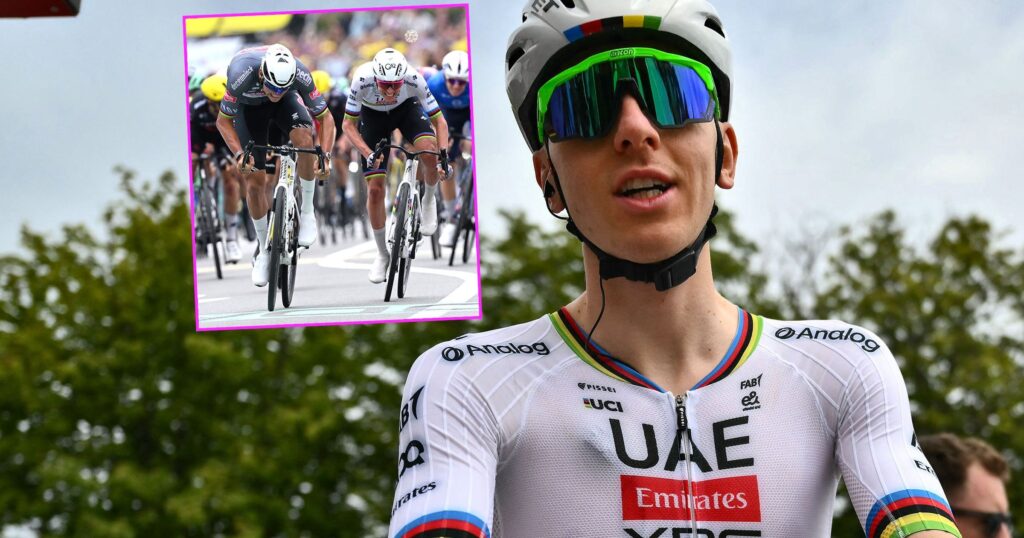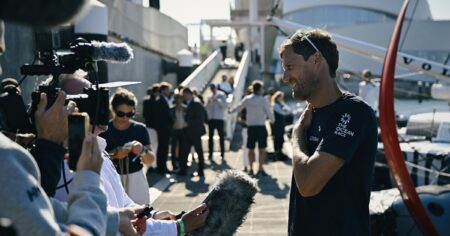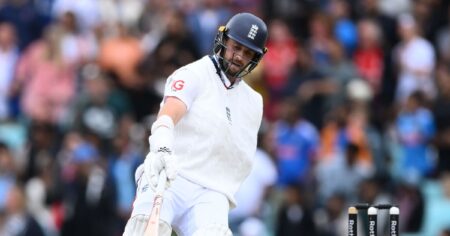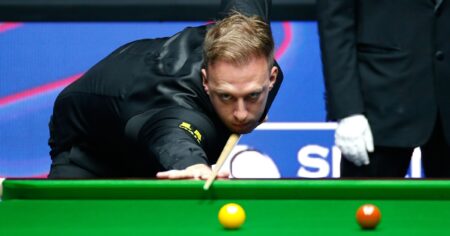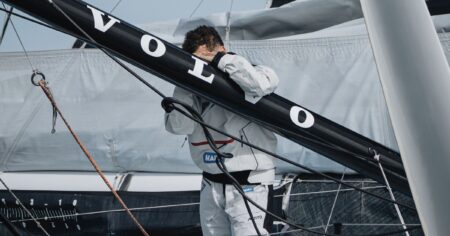The ongoing 2025 Tour de France has revealed a different side of Tadej Pogacar (UAE Emirates-XRG) compared to the relentless and audacious racer we have come to know. In Stage 2’s finale, the usually bold Pogacar seemed to adopt a more conservative approach, particularly when contrasted against his rival Jonas Vingegaard (Visma-Lease a Bike). Traditionally characterized by his aggressive race tactics, Pogacar appeared content to shadow his competitors, raising eyebrows among fans and commentators alike.
In a moment that starkly captured this shift in strategy, Pogacar did not unleash one of his famous attacks during the closing kilometers. Instead, he followed Mathieu van der Poel (Alpecin-Deceuninck) closely, showing hesitance even in the final sprint. Van der Poel ultimately clinched the stage victory, marking his first win at the Tour de France since 2021, while Pogacar remained in his shadow. After the race, Pogacar himself offered an intriguing insight into his mindset. He admitted to feeling a bit “scared” in the last 400 meters of the race, stating, “Of course I would have wanted the win, but I got a bit scared… I stayed on Mathieu’s wheel but of course, he’s too fast for me.” This self-reflection raises questions about Pogacar’s level of confidence and strategy as the race progresses.
Analysts have been quick to dissect the implications of Pogacar’s behavior. TNT Sports commentator Adam Blythe expressed surprise, noting, “Tadej didn’t attack, and that is very interesting… Normally, you can almost guarantee him waiting, waiting, waiting… now he’s gone.” His commentary suggested that Pogacar’s usual tactics of waiting for the perfect moment to strike were conspicuously absent in this instance. When asked if Pogacar was playing it safe, Blythe posited that perhaps he was trying to give his rivals a chance to gain confidence, which is an unusual strategy for the Slovenian rider in such cutthroat racing conditions.
Adding another layer to the discussion, Jonathan Vaughters, the team manager for EF Education–EasyPost, predicted that the upcoming time trial stage would be a true test of Vingegaard’s current form. Vaughters mentioned, “The style of racing is different, but to me that just means he feels really strong.” His comments hinted that Vingegaard’s explosive performances on the steep climbs could translate into a significant advantage during the time trial. Vaughters expressed that he had initially pegged Remco Evenepoel as a formidable contender for the time trial, but the evidence of Vingegaard’s current strength might suggest he could outperform expectations.
Support for Vingegaard’s new racing style came from Team Jayco–AlUla’s Michael Matthews, who highlighted this phase of this competition as showing a “gambling” side of Vingegaard previously unseen. Matthews observed, “In the past, we would’ve thought Jonas might lose some time on Tadej… I think he’s a more rounded rider at the moment.” He appreciated this evolution, emphasizing that cycling fans desire thrilling, unpredictable races rather than calculated conservatism.
As the competition continues, the upcoming Stage 3, featuring a flat 178.3km stretch from Valenciennes to Dunkerque, will provide further opportunities for both Pogacar and Vingegaard to showcase their strategies. With each stage presenting new challenges and obstacles, viewers will be eager to witness how Pogacar’s conservative approach evolves, and whether or not he will return to his previous attacking form. The dynamics of this Tour, influenced by teamwork, psychological nuances, and tactical adaptations, promise to engage cycling enthusiasts around the world.
Fans can keep up with live updates and comprehensive coverage of this prestigious race through platforms like TNT Sports and discovery+, ensuring that no thrilling moment goes unnoticed. As the race unfolds, the contrasting tactics of these two elite cyclists will undoubtedly keep spectators on the edge of their seats.






